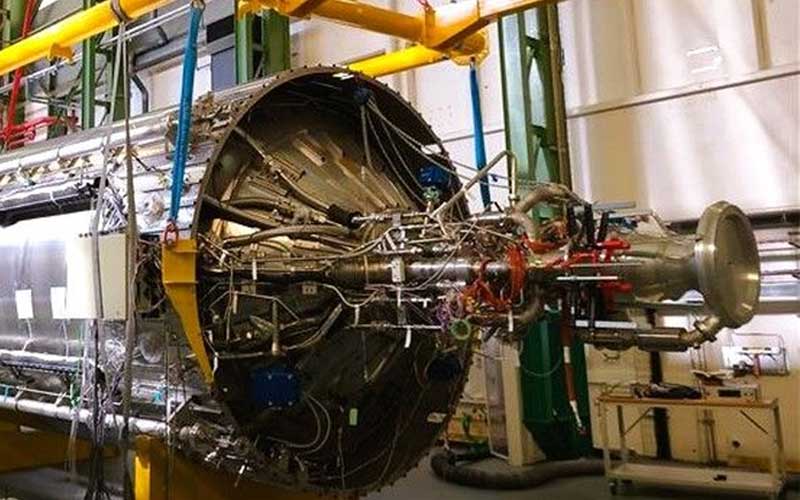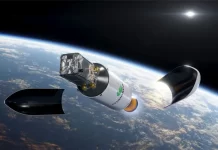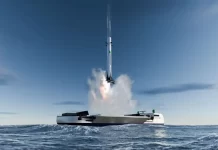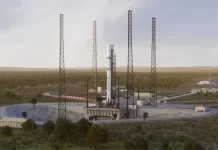
French launch startup MaiaSpace has announced that it is preparing to conduct the first hot fire test of the upper stage of its Maia rocket in 2025.
MaiaSpace is a wholly-owned subsidiary of ArianeGroup that was created in late 2021. The company is developing a partially reusable two-stage rocket called Maia that will be capable of delivering payloads of up to 1,500 kilograms when launched in an expandable configuration. Aboard both its first and second stages, the rocket will utilize Prometheus rocket engines, which are being developed by ArianeGroup under a European Space Agency contract.
On 3 September, MaiaSpace announced that it had received a mockup of a Prometheus engine from ArianeGroup. The engine mockup was mounted on a full-scale prototype of the rocket’s upper stage and used to validate mechanical and fluidic connections.
MaiaSpace is now in the process of preparing for the prototype stage’s first wet dress rehearsal. The company will then work towards the first hot fire test campaign of the rocket’s upper stage in 2025. This will be the start of an extremely busy year for the company as it plans to attempt an inaugural launch of Maia from the Guiana Space Centre in late 2025.
While the company is making good progress with the development of the rocket’s upper stage, it doesn’t have quite as much control over the development of the Maia first stage.
The rocket’s first stage will essentially be the Themis reusable booster demonstrator, which is also being developed by ArianeGroup under an ESA contract. Initial hop tests of the Themis demonstrator had been expected to begin this year at the Esrange Space Center in Sweden. However, the first test of the demonstrator is now not expected until 2025. MaiaSpace will, as a result, have very little wiggle room in its schedule if it is to conduct an inaugural launch attempt next year.
The Colibri kick stage
In addition to the work being done on Maia’s upper stage, the company has also made progress with the rocket’s optional kick stage. When equipped, the kick stage will increase the rocket’s payload capacity and offer greater mission flexibility. In December 2023, the company announced that it had completed the first hot fire test of the in-house developed rocket engine that will power its Colibri kick stage.




